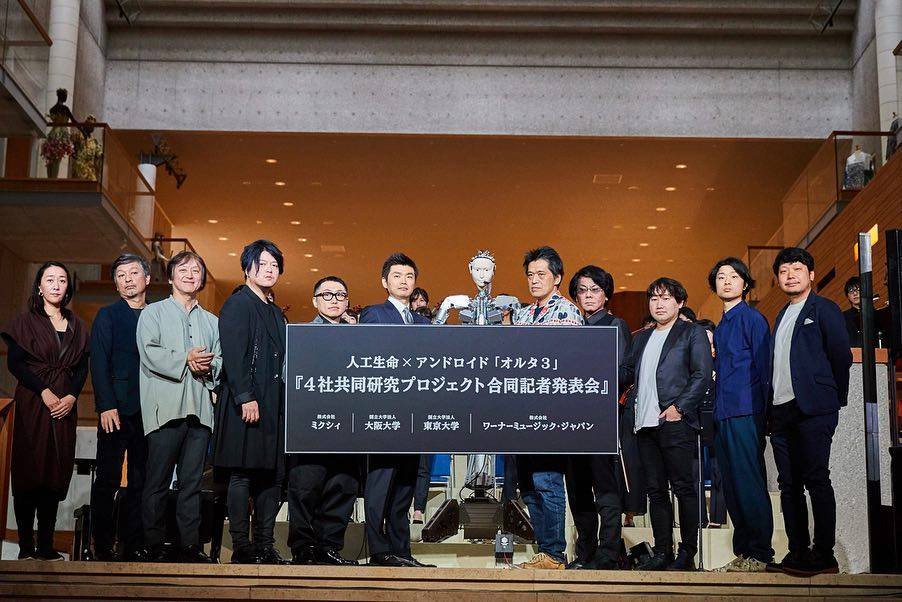On February 28, 2019, at the New National Theatre Tokyo, four groups (the Ikegami research lab from the University of Tokyo, the Ishiguro research lab from Osaka University, mixi Inc., and Warner Music Japan) held a press conference concerning the Artificial Life x Alter 3 Android joint research project. Also taking the stage was Doi, one of our development team members.
The theoretical design of the Alter 3 was handled by the Ikegami research lab at the University of Tokyo in order to achieve realistic and lifelike expression. The android is the first in the world to feature our ALIFE Engine™, a dynamics generation engine. In addition, our firm was responsible for the development of all aspects of the operating system and robot software.
The next version of the ALIFE Engine™ is currently in development, and we plan to expand it to use in a wide range of products and services beyond androids, robots, and AI, such as use cases where affection, familiarity, a sense of presence, lifelike expression, and the uniquely ineffable qualities of a lifeform would be needed.
https://robotstart.info/2019/02/28/alter3-preview.html
Alter 3 explained
This android was developed in order to explore fundamental questions of whether robots can obtain a sense of life and what life itself may mean. The robot can engage in reciprocal communication with the outside world. Alter is unique in that it has exposed machine parts and that it does not have a determinate age or sex. This is a joint project being pursued with the University of Tokyo and Osaka University.
Alter 3 is the third generation in the Alter line, which launched in 2016. New cameras have been installed in the eyes, and the mouth is now capable of producing sound, with dynamic movement also incorporated.
Based on ALife principles (i.e., creating a robot not about optimizing objective functions, but in which motion is generated), the android utilizes an internal simulation of itself to communicate with humans that enter its field of view, as well as strike new poses.
Direction & programming: Takashi Ikegami research laboratory (University of Tokyo)Hardware: A-lab, Kohei Ogawa, Hiroshi Ishiguro (Osaka University)
Software Architecture Design & Programming: Itsuki Doi, Takashi Ikegami (University of Tokyo), Atsushi Masumori, and Norihiro Maruyama (Alternative Machine Inc.)
Alter3 Simulator: mixi Inc.
